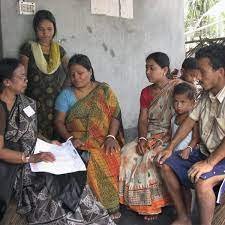The Census, a decennial exercise conducted in India since 1881, faced an unprecedented delay in 2020 due to the ongoing pandemic. While the government has not yet announced new dates for the Census, preparations are underway, and certain details have emerged regarding its features. Notably, the upcoming Census will be the first to be conducted digitally, allowing citizens to participate in a “self-enumeration” process.
To facilitate the self-enumeration option, the government has made the National Population Register (NPR) mandatory for citizens who wish to fill out the Census form on their own, rather than relying on government enumerators. The Office of the Registrar General of India (RGI) has developed a self-enumeration portal, currently available only in English, which is yet to be launched. During the self-enumeration process, individuals will be required to provide their Aadhaar number or mobile number.
The postponement of the Census is attributed to a January 2 notification that extended the deadline for freezing administrative boundaries in Indian states until June 30. As a result, the Census is unlikely to commence before September, considering that preparations and training for approximately 30 lakh (3 million) government officials, who will act as enumerators, require at least three months. These enumerators will be responsible for collecting details from an estimated population of 135 crore (1.35 billion) people through both online and offline modes. Each enumerator is expected to gather information from 650 to 800 individuals.
Another significant factor contributing to the delay is the scheduled Lok Sabha election in April-May 2024. Given that the same workforce will be engaged in election-related activities, it is improbable that the Census will be conducted before the elections. This overlap in timelines would require the workforce to be dedicated to the electoral process, leaving little room for conducting the Census simultaneously.
While the exact timeline for the Census is still uncertain, the groundwork is being laid, and the government is committed to conducting the exercise at the earliest feasible date. The transition to a digital format for the Census reflects a modern approach that empowers citizens to actively participate in the data collection process. As the Census progresses, it will provide valuable insights into India’s changing demographics, facilitating evidence-based policy planning, resource allocation, and social welfare initiatives.


